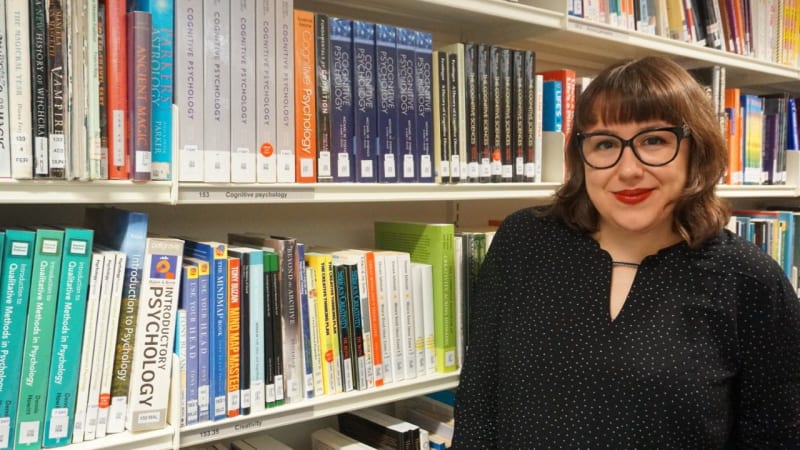



Originally from Albania, Soljana obtained a first class Bachelor of Psychology (Honours) in Malta and then moved to England to do her PhD in Psychology at the University of Southampton. After teaching for 10 years across different universities in Albania and the UK, she's now lecturer on the MSc Applied Psychology in Fashion course and co-author of the book Autobiographical Memory and the Self: Relationship and Implication for Cognitive-Behavioural Therapy. In this interview, Soljana tells us about her journey from clinical psychology into fashion psychology and explains why working collaboratively is so important in the fashion industry.
At the age of 13, Soljana decided she wanted to study Psychology. However, halfway through her degree, her journey to become a clinical psychologist took an unexpected turn: "In the second year of my undergraduate course, I realised that it is a very difficult job because it involves dealing with others' suffering all the time. I decided to go into research instead, where I could still help others through my findings." Despite leaving behind the idea of working in a clinic, she kept close to her true passion, exploring various areas within clinical psychology. For her PhD project, Soljana focused on the way past experiences can affect us when we remember them and how negative or traumatic memories can be modified in therapy using a technique called imagery rescripting.
Soljana mentions that her area of expertise extends from clinical psychology to cognitive, social, and personality psychology, a very positive trait for her students:
"It allows me to teach across many areas of psychology, so in my lectures I can bring all the different areas together and use them to understand fashion-related phenomena from multiple perspectives."
"This is something that students seem to notice, because in unit evaluations they often mention my knowledge of psychology and the way I approach different topics as being among the best features of my units."
During the lectures with Soljana, the MSc students learn about personality and individual differences, looking at how psychology can be applied in the context of fashion from multiple angles: the influence of personality on our behaviour; the use of clothes to manage our emotions; how our attitudes (e.g. those towards sustainability) are formed and how we can change them; consumers' psychological well-being and how it is affected by fashion industry practices; and even psychological disorders in designers, garment factory workers, and fashion models, "which is a very under-researched area by psychologists," she adds.
Soljana also leads the Psychology Collaborative Unit, which focuses on group dynamics through collaborative projects with external partners and students from other disciplines: "In this unit they learn how groups work and how it can be made effective according to the different roles they can adopt."
"Whatever job they intend to do in the future, it will include working with other people, so my goal is to make sure students learn how to be effective group members and leaders."
When asked about what she enjoys the most about lecturing, Soljana says that seeing how students progress along the course is very rewarding: "We get students who come from many different areas - business, accounting, history of art, fashion design, anthropology, communications. Most students don't have a background in psychology, so it makes me very proud when I receive a very well-written dissertation and I can see how much they've expanded their knowledge and critical thinking in just one year."
As well as providing a stimulating learning environment, where students are free to discuss and explore many different areas related to fashion and psychology, Soljana believes it's important to remind prospective students that this is also a science-based course: "We don't make things up or make claims that we cannot back up with research evidence. We investigate different phenomena in a rigorous way and we then analyse the data in a rigorous way. Sometimes students who don't come from a psychology background struggle with that at the beginning of the course, but we are here to help and take them to the level where they should be."
The scientific research element is definitely key to the ethos of this MSc. Because fashion psychology is such a hot topic right now, Soljana mentions that sometimes in the media there are comments or analyses on fashion which are not backed by psychological theory or scientific research. She states that studying this MSc gives students an advantage in the fashion industry:
"My goal is to strengthen students' analytical skills and provide them with a very good understanding of psychology and research through my teaching and dissertation supervision. It's very important to me that our students understand the value of psychology, science and integrity."